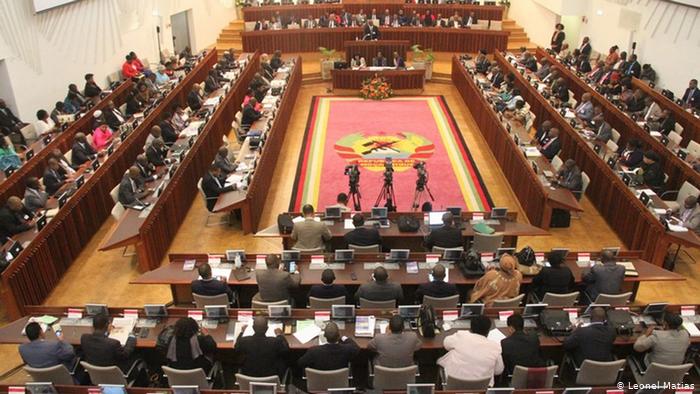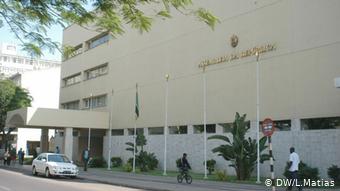Mozambique: Ana Maria Gemo appointed Presiding Judge of Administrative Tribunal
Mozambique: The ‘reintegrated’ defend controversial reintegration subsidy

File photo: DW
Social reintegration allowances for deputies of previous legislatures in Mozambique have attracted fierce criticism. But former deputies in Zambézia province are challenging that point of view.
More than one billion meticais (more than €13 million euros) is allocated in this year’s Assembly of the Republic budget for the social reintegration allowances paid to deputies who served in the previous legislature – one of the largest items in the parliamentary budget. Every deputy ending his term in office receives about four million meticais (about €54,000).
The figure has generated controversy. The Budget Monitoring Forum (FMO) considers the amount “too high”, especially considering the living conditions of the majority of Mozambicans. But several deputies contacted by DW brush off the criticism and stress that the subsidy is nothing new.
One such is the Democratic Movement of Mozambique’s José Lobo, a beneficiary of the subsidy.
“The subsidies of the deputies of the Assembly of the Republic were approved in 2014. I know that civil society is constrained because of the Government’s action, but the deputies’ subsidy is legislated, it is not a new thing,” he says. “Deputies from past legislatures also received it.”

Provided for by law
The reintegration allowance is provided for in the law of the Deputy Statute enacted in December 2014 by the then President, Armando Guebuza. Article 45 of the document establishes that, when their term ends, parliamentarians are entitled to a subsidy of 75% of the base salary, for each year of service.
Nelson Paiva, a former Frelimo deputy and another beneficiary of the subsidy, says the payment of four million meticais is not an issue – not least because he made payments for his retirement pension. Anyone who makes the payments, receives the subsidy: that is the law.
“I confess that only insiders know that the deputy is actually discounted 13% of his salary. It is not an offer. It is the deputy’s right,” he explains.
Civil society contests
But academic Lourido Verde says the big problem is the size of the payment, especially on top of all the other benefits and perks deputies are entitled to. This does not go down well in society, especially at a time when the country is facing a serious economic crisis and needs extra money to fight the spread of the new coronavirus.
For the academic, “all excess creates social differentiation” and it is this that causes the revulsion in people.
“Some suffer cuts and others continue to maintain their perks. We are being represented by insensitive people who distribute the bread to themselves and are not fighting to distribute the bread to the people,” Verde argues.
Representation crisis
Political analyst Ricardo Raboco says the deputies’ social reintegration allowance highlights a crisis of political representation. “Today, being a deputy no longer means being a spokesperson for the citizen. It is a matter of employment, which makes everyone today want to be a deputy.”

In 2014, the law for the Deputy Statute was passed in parliament with Frelimo voting in favour, and Renamo and the MDM voting against.
The MDM’s José Lobo leaves an appeal.
“There is no point in attacking the deputies, because the deputies are not to blame – quite the opposite. Most laws and initiatives presented by the opposition are rejected. It’s the laws and initiatives presented by Frelimo that pass [in parliament]”.













Leave a Reply
Be the First to Comment!
You must be logged in to post a comment.
You must be logged in to post a comment.